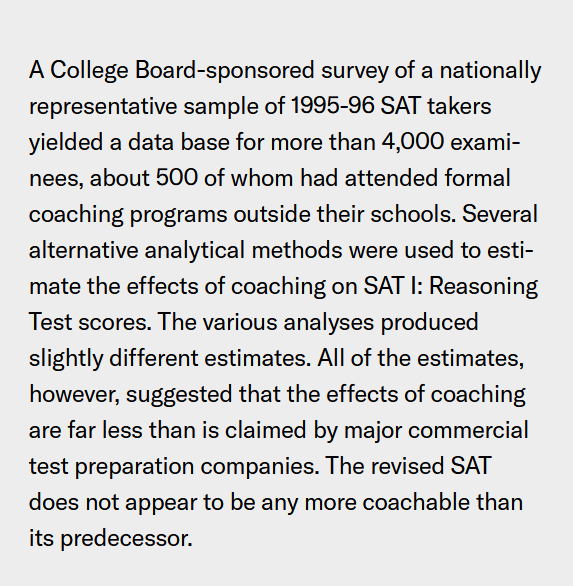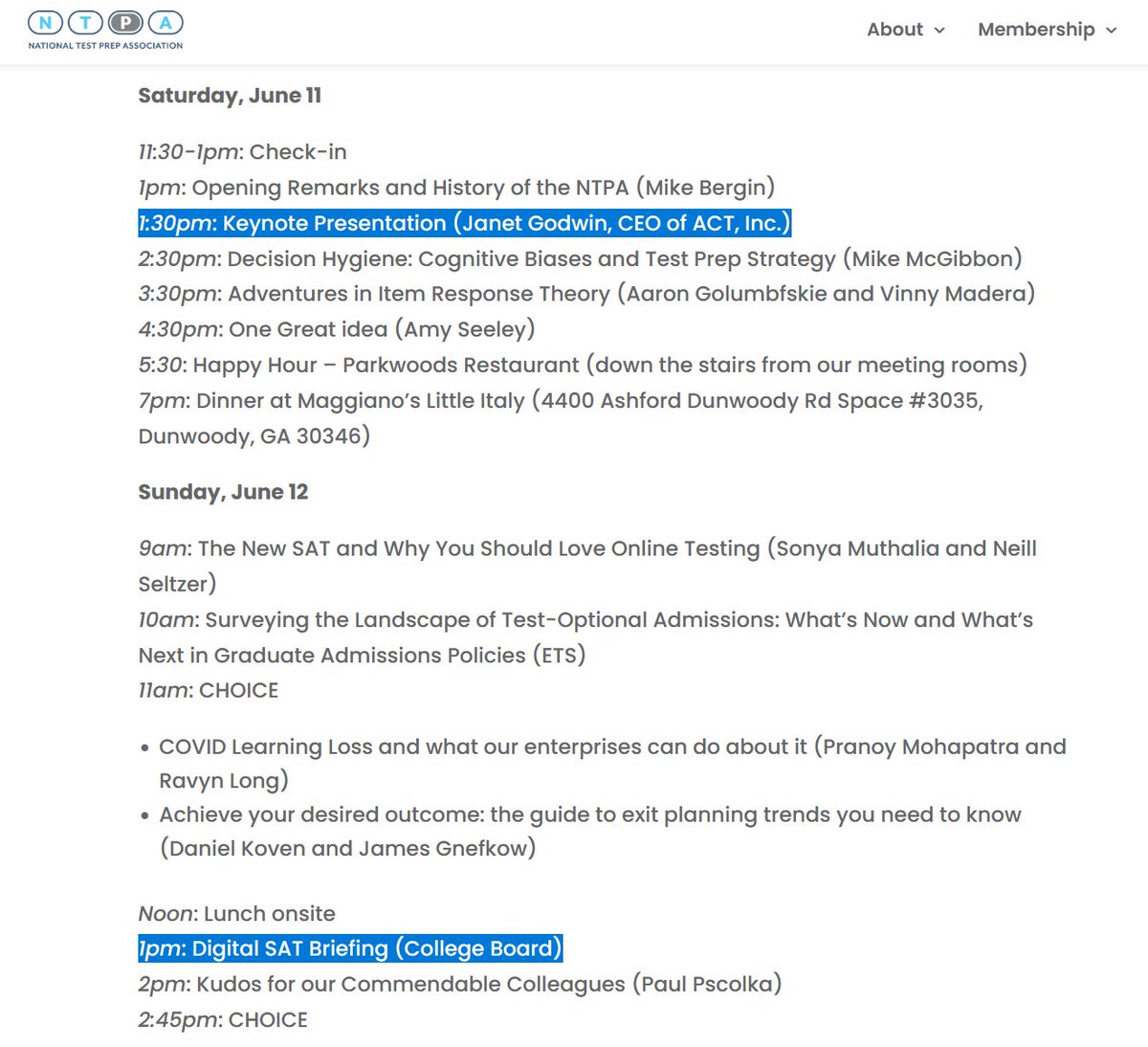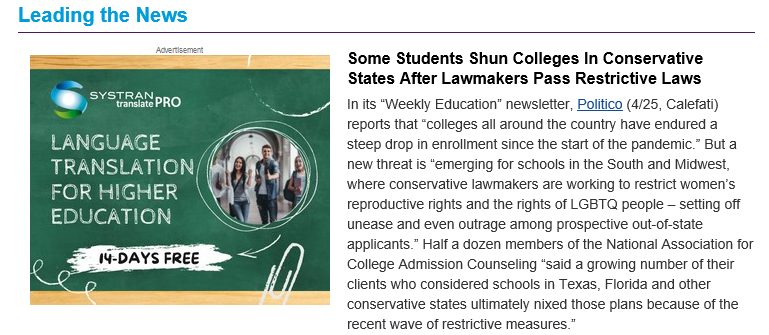
Thread: Having just talked about retention and graduation rates today, a few thoughts to add some perspective. Have a cup of coffee and settle in for some reading.
First, there are three ways to "increase graduation rates." The first is to do a lot of work with your current students. This is the student services angle on it; the premise is that graduation rates are largely a function of what happens in college.
The problem with that is that student affairs people tend to focus on "at risk students." The problem with THAT is that a) most students who are "at risk" don't fail out, and that most students who fail out were not "at risk."
Another problem is that academic reasons are only one of the reasons students might not retain or graduate. Sorry, Clarence Thomas.
But IF you change systems that affect all students, you have a chance to increase graduation rates. Not by a lot (as we'll see in a moment) but by a little. You will not go from 65% to 80% by doing this.
You just won't.
You just won't.
The second way to increase graduation rates is to change how you count. I know at least two large public universities that take those students with the lowest chance of graduating, and divert them into non-full-time-status in their first term, for instance.
This means you don't count them in your graduation rate statistics. Guess what? Your grad rates go up.
Now you want to Google "Campbell's Law." Or I'll do it for you. en.wikipedia.org/wiki/Campbell%…
Now you want to Google "Campbell's Law." Or I'll do it for you. en.wikipedia.org/wiki/Campbell%…
The third way is to change whom you admit.
Below are the factors that help determine who's going to graduate (they're pre-admission characteristics, which may, of course, give away the ending here.):
Below are the factors that help determine who's going to graduate (they're pre-admission characteristics, which may, of course, give away the ending here.):
1) Parental attainment. If your parents went to college, you're more likely to graduate.
2) Wealth. If your parents are wealthier, you're more likely to graduate from college. This should not be a surprise to anyone who works in financial aid.
2) Wealth. If your parents are wealthier, you're more likely to graduate from college. This should not be a surprise to anyone who works in financial aid.
3) Ethnicity. If you are White or Asian, you're more likely to attend, and to graduate from, college.
These all affect an individual student's chances of graduating. And, of course, they covary strongly. If your college enrolls mostly students like this, your graduation rate is likely to be higher, which won't mean, of course, that your college won't take credit for it.
There are also institutional characteristics that affect graduation rates.
1) Selectivity. People affiliate with, and are less likely to switch, luxury brands.
1) Selectivity. People affiliate with, and are less likely to switch, luxury brands.
2) Selectivity, redux. If you take very few chances in the admissions process, your grad rate will be higher. You just select those students most likely to graduate. See above to figure out what those characteristics are.
3) Extraordinary resources. If you can afford to give very generous aid packages to students who need it, you can overcome one of the biggest obstacles to graduation.
But those low-income students will still generally graduate at lower rates.
But those low-income students will still generally graduate at lower rates.
This is because there are many other factors associated with low-income families that fight against graduation.
One institution that made an effort to enroll more low-income students told their alumni that doing this was going to lower their grad rates and, thus, their USNWR ranking. Good on them.
A long time ago I wrote about how graduation rates are inputs, rather than outputs. You can predict a college's six-year grad rate very well just by looking at the Mean SAT of the incoming class. highereddatastories.com/2014/02/are-gr…
Aha! The SAT is predictive! (I can hear you through the Interwebs). Well, the SAT score does (or used to, when it was a part of admissions everywhere) capture academic prep, wealth, and ethnicity (see above). So, yeah. It's just not helpful once you know those other things.
And, of course, you can see there IS some variation among schools with similar profiles. So you MIGHT be able to improve your rates, but a) they're mostly destiny, and b) the variance is probably explained by other things.
UCLA's CIRP at HERI said there were five factors, I think, that sort of pre-destined your grad rates. Not much has changed. Except it's probably gotten harder for low-income kids to graduate.
If you're really interested in this, go to this page. Then hit {Control F} and type "graduation." You'll see a lot of words and posts about grad rates. Have at it. highereddatastories.com/p/all-posts.ht…
So, within some narrow variance, grad rates really are inputs, not outputs. But again, that won't stop some colleges from claiming otherwise.
Take a look at the numbers. Tell me if I'm wrong if you want. Come with data.
Take a look at the numbers. Tell me if I'm wrong if you want. Come with data.
And if you accept a small percentage of applicants, and they're mostly White or Asian, of college-educated parents, and come from the top 1% of incomes, and you think your grad rates are your doing, well
Oh, and #EMTalk
• • •
Missing some Tweet in this thread? You can try to
force a refresh










